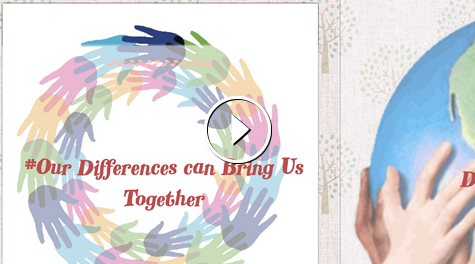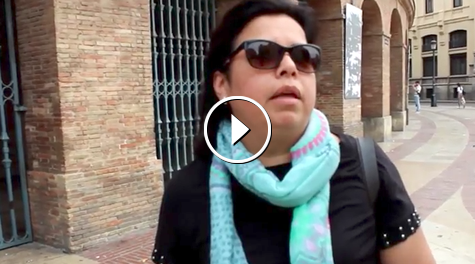Neeru Mittal's class
Team: Anshika Arora, Hutashan Solanki, Rishabh Uniyal, Parthav
The students researched thoroughly on topic of invisible borders. They were so excited upon discovering so many new theories and warfare that without my prompting they came up with this beautiful Sway.

Santhi's class
The students' view on conflicts: watch this video.
Amita Sharma's class
In this present era of intolerance, people have isolated themselves both physically and emotionally by building barriers like mental blocks or the fences. This is the time we all need to get rid of these walls of gender, race and religion, traditional & economical differences and be united to create a peaceful and progressive global community. Watch their videos:
Video 1 - 2 - 3 - 4 - 5 - 6 - 7 - 8 - 9 - 10 - 11 - 12 - 13 - 14 - 15 - 16 - 17 - 18 - 19 - 20 - 21 - 22 - 23 - 24 - 25 - 26 - 27
Students asked to define a wall- a boundary that 'bounds us' – safe limits but we must ask ourselves for whom? As Robert Frost asks in his poem “Mending walls” are we walling in or walling out? Who are we keeping in or trying to keep out. History, tradition has shown that 'literal' walls here always come down. – ref. to ‘Berlin Wall’ and now a united Germany. Was the wall only is literal wall or is the wall a barrier that exists in the heart and the mind- bias for gender, ethnic differences, religious intolerance, economic differences and differences lead to conflicts that lead to wars as frost says “something there is that doesn’t love a wall “that wants it down. When Frost wrote this America was going through the civil war – breaking the wall of color discrimination. The time is to build bridges that cross all walls – realization that we all have the same bodies, souls, dreams desires. 'Good fences make good neighbours' - respect the rights of others and don’t expect from others what you yourself cannot tolerate.






















